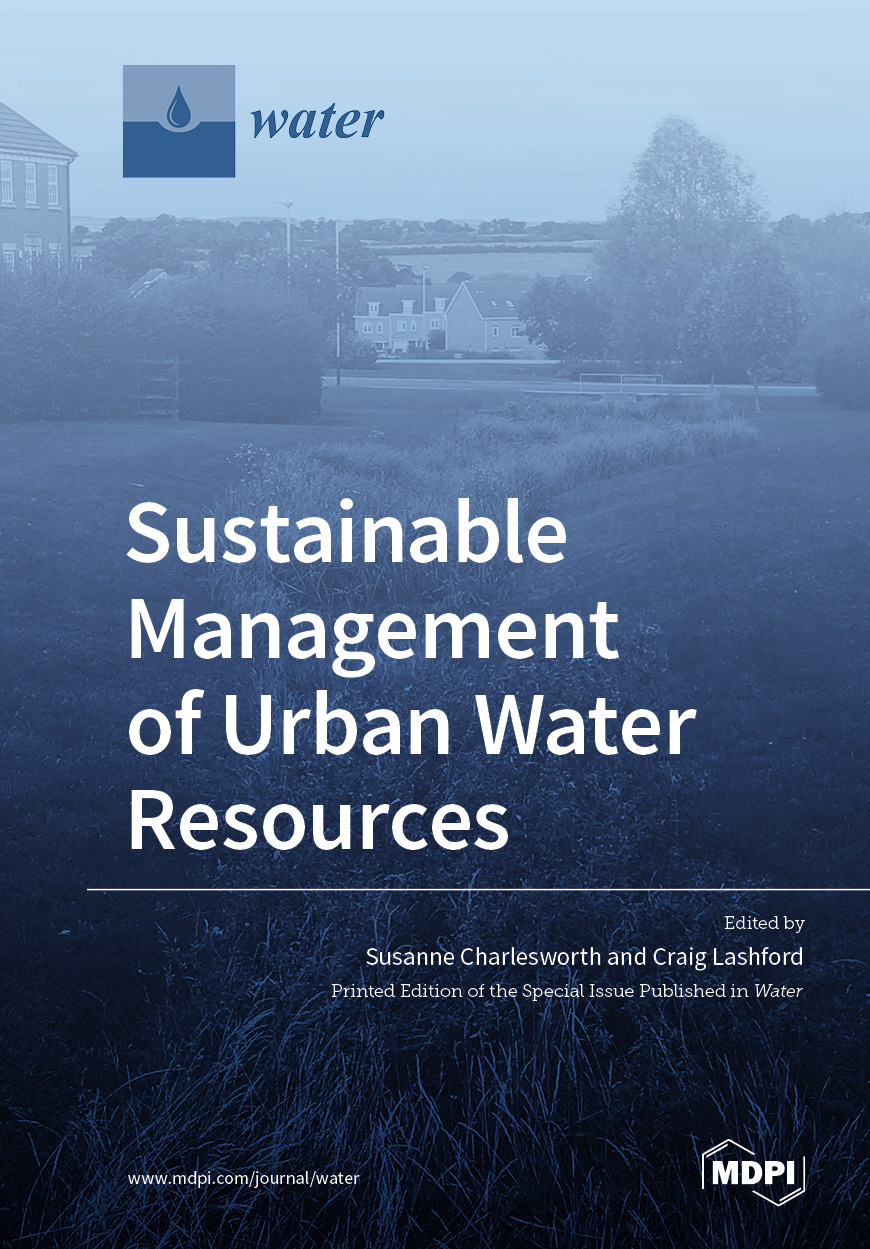Sustainable Management of Urban Water Resources

Download Url(s)
https://mdpi.com/books/pdfview/book/3358Contributor(s)
Charlesworth, Susanne (editor)
Lashford, Craig (editor)
Language
EnglishAbstract
It is well known that 55% of the world’s population currently lives in urban areas, and this figure is predicted to grow to 68% by 2050, adding more than 2.5 billion people to urban populations. It is also projected that there will be 43 megacities worldwide by 2030, with populations of more than 10 million inhabitants. The United Nations World Water Development Report, 2018, warned that by 2030, the global demand for fresh water is likely to exceed supply by 40%. Added to population growth, climate change has the potential to lead to changes in rainfall regimes, with the potential of increased flooding and drought. Currently, 1.2 billion people are at risk from flooding, but this is predicted to increase to about 1.6 billion, i.e., nearly 20% of the total world population, by 2050. In line with this, replacing deteriorating water management infrastructure that can no longer cope is economically unfeasible, impracticable from a construction point of view, and likely to fail in the long term. To address these issues, approaches are needed that are flexible and have multiple benefits. In its World Water Development Report, 2018, the UN promotes the use of nature-based solutions to some of these problems, with the focus of Sustainable Development Goal 6 (making sure that everyone has access to a safe and affordable supply of potable water and sanitation by 2030) requiring investment in suitable infrastructure across the world. This Special Issue covers the challenges faced in managing urban water in all its forms, from potable supplies to reuse and harvesting, as well as resilient and sustainable approaches developed to address flooding and drought.
Keywords
SWAT; urbanization; nutrient loads; constructed wetlands; buffer zones; river bank stabilization; multi-source combined water supply; optimal allocation of water resources; incoming water uncertainty; guaranteed rate of water use; groundwater; Heckman model; self-supply; water demand; water economics; industry; climate change; coastal protection; coastal flooding; sea defence; experimental modelling; sustainability; detention basins; green roofs; MicroDrainage; porous pavement; runoff reduction; swales; biological evolution; ecosystem services; low impact development (LID); stormwater best management practices (BMP); stormwater control measures (SCMs); sustainable drainage systems (SuDS); water sensitive urban design (WSUD); potable supplies; groundwater level changes; infiltration; recharge; climate changes; water efficiencyWebshop link
https://mdpi.com/books/pdfview ...ISBN
9783039438938, 9783039438945Publisher website
www.mdpi.com/booksPublication date and place
Basel, Switzerland, 2021Classification
Research and information: general

